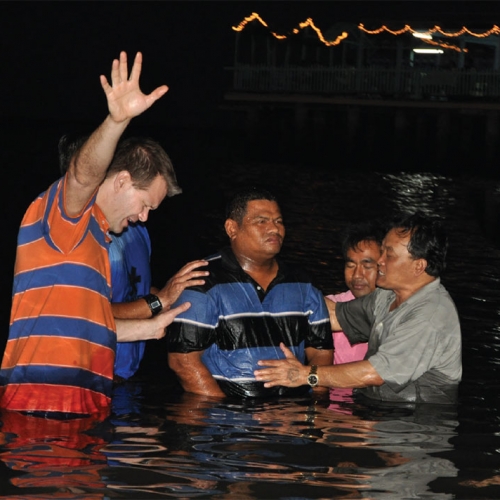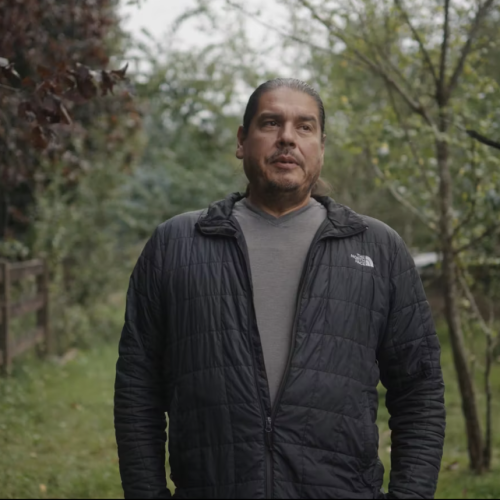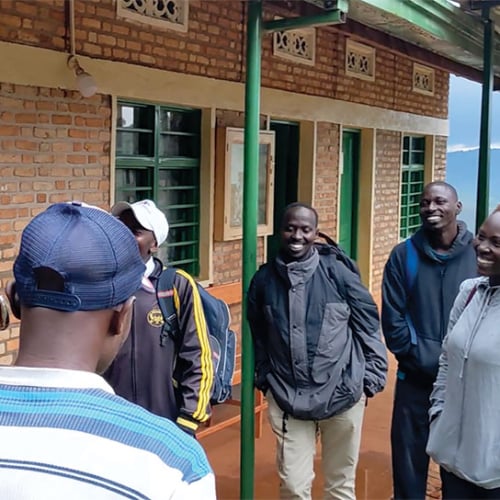Have you ever been publicly corrected? Ouch! It’s painful, but the lesson is not soon forgotten.
On a study leave in 1989, I spoke at a mission conference at Forest Grove Community Church in Saskatoon. I was the junior missionary, with only five years of experience, while G.W. Peters was the senior mission statesman, with nearly fifty years of experience. I spoke first and gave a well-intentioned call to faithfulness in mission, asserting that some are called to go, like me and my family, and some are called to stay, like the sending church I was addressing.
When my senior colleague took the pulpit, he corrected me in no uncertain terms. “Brother,” he said, “you do well to re-examine the Scriptures, and re-think your message. Did not Jesus commission all his followers to “go and make disciples”? And did he not send all the gathered disciples “as the Father sent me”? Finally, did he not prophesy on the Mount of Olives to all the apostles, saying “you will be my witnesses in Jerusalem… and to the ends of the earth?”
What could I say? G.W. Peters was right. In hindsight, I think he was not only correcting me, but the entire church. We are all called, all sent, all witnesses, and all must be going according to God’s assignments for us. It is God’s mission and God who sends. Before we go anywhere, whether crossing the seas or crossing the street, we are sent.
Before the foundation of the world, God the Sender started his mission by designing the perfect plan of salvation, which included Father, Son, and Holy Spirit. But isn’t it amazing that the Triune God chose to include and send us, his jars-of-clay people? It started with Abraham being sent by God to “be a blessing.” The sending story continued when God sent Israel from Egypt to “be a kingdom of priests.” Throughout the Old Testament, there were further sendings in God’s mission to the nations, such as Elisha to the Syrians, Jonah to Nineveh, and Daniel to the Babylonians.
The New Testament story is centered around the incarnation of God the Son, which is the supreme sending. Yet the sending gift goes on and on through the Church as Jesus commissions his disciples and then God the Father and the Son send the Spirit upon the Church to empower them for this divine mission. The Spirit of the sending God has been sending the Church since the day of Pentecost. He sends the Church collectively, such as the scattering from Jerusalem in Acts 8, and sends the Church via specially assigned individuals like Barnabas and Saul (Acts 13:4) and many more missionaries to follow.
However, as I was rightly corrected, let us not exclude ourselves from God’s sending. God doesn’t only send prophets like Jonah and apostles like Paul. He sends ordinary folks like merchants and migrants (Acts 11:19-20) on his extraordinary mission. He gives his missionary Spirit to “all people … sons and daughters … young men and old men” (Acts 2:17).
Furthermore, the sending continues to everywhere, “…Jerusalem, Judea, Samaria, and to the ends of the earth” (Acts 1:8). In this edition of Witness, you will read stories of sending from Mexico to Peru, from France to Burundi, and from USA to North Africa. But God’s sending is not just from nations to nations, it’s from neighborhoods to neighborhoods. You’ll read about Kora reaching out to Tibetan immigrants in North America, illustrating well that we are sent not only across the seas, but across the street. Maybe God is sending you across the hallway or the classroom. My wife and I were sent overseas to Brazil for many years, but now we are crossing our driveway to reach out to our neighbors or crossing the city to serve among our Punjabi friends.
I had the joy of teaching a course on mission at Columbia Bible College last year. My students were both spiritually devoted and culturally sensitive. One question came up more than once regarding the appropriateness of us in the West going to other peoples and religions on a mission. “Who are we, after centuries of colonialism, and after Christianity’s missteps time and again, to go and share our good news?” It’s a fair question, and I agree that we should evaluate our methods, but in terms of our identity and authority, I would say this, “We don’t go as Canadians or Americans, we go as ambassadors sent by the King of kings. We are fully authorized and sent by him—it’s his mission and his message.”
In his amazing grace, God has seen fit to place us as an MB family on mission in 68 countries and even more ethno-linguistic people groups. However, today the world is smaller than ever as the nations are in our cities, even at our doorsteps. We live closer to each other than at any time in history. Still, we should recall the words of Jesus to his disciples, “Let us go over to the other side,” that is, to the unreached (Mark 4:35, 5:1).
Will we go over to the other side? In this issue of Witness, we tell stories of reaching Buddhists, Muslims, animists, and others. Yet for every story of reaching one, there are countless lives and communities still unreached.
The mission has not changed, nor the message, nor the mandate to the messengers. Some methods will change according to culture and generation, yet the essence remains the same. Jesus’ commission to his disciples remains for us: ‘As the Father sent me, so send I you!” Instead of asking, “Are you sending me?” should we not ask, “Where and to whom are you sending me?”





































